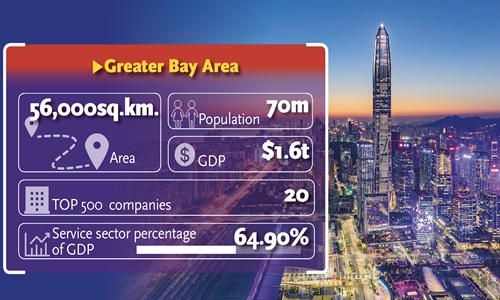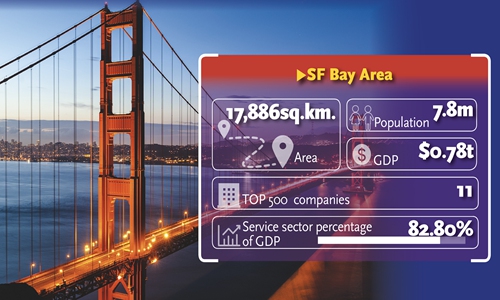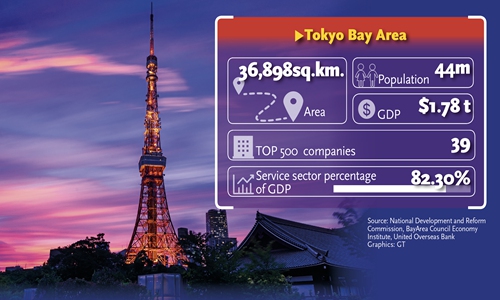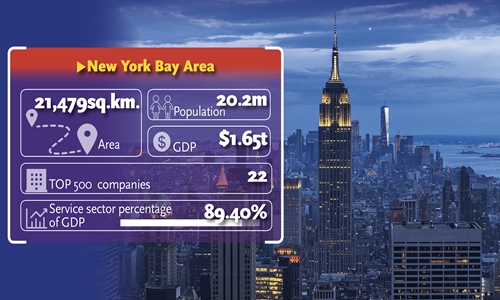
After almost a year's development, China's ambitious Guangdong-Hong Kong-Macao Greater Bay Area has been gradually taking shape and injecting fresh momentum to the two special administrative regions (SAR), industry observers said.
They noted that the area, with smoother movements of people and resources, is on a path to rival other major bay areas in the world.
Following the release of the blueprint in February, the central government and local authorities have released follow-up policies, aiming to boost flows of resources and integrate the Hong Kong SAR and Macao SAR further into the grand national plan.

The most recent step is an easing of housing policy for talent from the two SARs, which allows those who have no property in the Chinese mainland to buy one apartment in Guangzhou, South China's Guangdong Province, said the Guangzhou Real Estate Trade Registration Center on Wednesday.
In November, China's top economic planner - the National Development and Reform Commission - announced that it will implement significant policies beneficial to Hong Kong and Macao. Infrastructure construction, including several high-speed railways in the area, is on schedule.
The grand plan is gradually unfolding, and it has no doubt offered fresh momentum to the two SAR, Liu Guohong, director of the Department of Finance and Modern Industries at the China Development Institute in Shenzhen, told the Global Times on Wednesday.
The Greater Bay Area offers tremendous opportunities for Macao's insurance institutions and accounting houses, the mainstay of the local financial market, to expand operations, said Wong Kuok Iong, a member of the Financial Professional Committee of the Guangdong Association for Promotion of Cooperation among Guangdong, Hong Kong and Macao.
The close bonds among relevant professionals from Macao and their counterparts in the Chinese mainland make it easier for flows of talent and businesses in both directions, Wong, also vice chairwoman of the Women's Association of Macao, told the Global Times in an interview on Tuesday.

Research cooperation in the region can receive a boost under the grand plan. Song Yonghua, rector of the University of Macao, said in an interview with the Global Times on Tuesday that researchers in Macao can now participate in the establishment of national scientific research platforms more effectively, and apply for cross-border research grants and research projects with greater convenience.
Greater cooperation with other cities in the area will also benefit the commercialization of the university's research outcomes, he noted.
Given various external and domestic headwinds in Hong Kong, the Greater Bay Area provides new impetus to Hong Kong's economy and creates development opportunities for local people, especially youth, Carrie Lam, chief executive of Hong Kong SAR said in October.
She added that Hong Kong should take a more proactive role in the Greater Bay Area with its strengths in financial and professional services, aviation, and innovation and technology.

The vision for the area, which is home to 71.16 million people and had aggregate GDP of $1.6 trillion in 2018, extends far beyond its domestic functions.
"If looked at indicators such as economic size, port throughput and population, the area is no doubt a powerful rival to Japan's Tokyo Greater Bay Area, the San Francisco Bay Area and the New York metropolitan area in the US," Liu said.
Liu noted building the area means the country needs to merge different tax, customs and legal systems. That process will bring challenges, but it also means opportunities and offers unprecedented attractions for all types of capital and players in the world, who can all find elements they want in the region.
While expressing optimism about the region's prospects, industry analysts also stressed that when it comes to competing with global rivals, there is still a long way to go, especially in terms of research investment, industry structure and innovation ability.
"We should give priority to facilitating flows of people, goods, capital and information in the region, and for achieving that, we should go step by step," Liu said.



